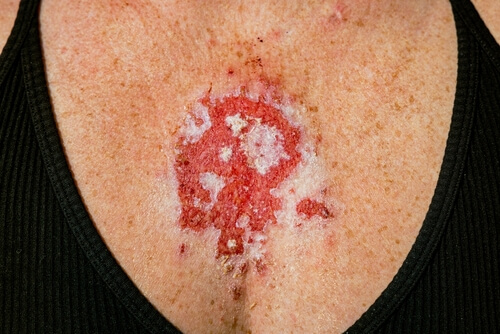SKIN CANCER SCREENING – WHY IT’S SO IMPORTANT
London Dermatology | 9 November 2024
The most prevalent type of cancer is skin cancer. Skin cancer comes in several forms, such as melanoma, squamous cell carcinoma, and basal cell carcinoma. The most serious yet uncommon kind is melanoma.
UV radiation from the sun or tanning beds, together with other risk factors including heredity, is what causes skin cancer. UV radiation accelerates the formation of aberrant skin cells and damages the DNA in skin cells. Regular skin cancer screenings should be a crucial component of everyone’s healthcare regimen since, if ignored, the malignant cells have the potential to spread to deeper layers of the skin and ultimately throughout the body as metastases.
Also, because there are less garments to take off, being screened is simpler in the summer, when UV exposure is at its highest and people are more conscious about their skin.
Early signs of skin cancer to look out for include:
– Changes in the size, shape, or color of moles
– New growths or spots on the skin of any color
– Asymmetrical or irregularly bordered moles
– Irregularly colored moles or other skin spots
– Moles larger than 6mm in diameter
We could suggest a biopsy for additional examination if any troubling spots are found during a screening.
One of our dermatologists thoroughly examines the whole body during a skin cancer screening, searching for any unusual lesions or alterations to preexisting moles. She could make a note of the size of any suspicious spots and ask you to inspect them later.
To guarantee a thorough evaluation, cutting-edge tools such as dermatoscopes, which provide a closer look at the layers of skin, may be used. To correctly diagnose a skin lesion or mole as cancer, a biopsy or sample may be obtained.

